Filter by
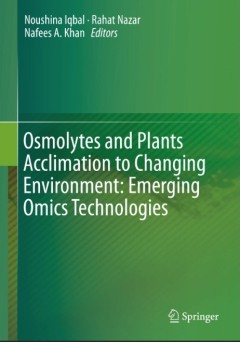
Osmolytes and Plants Acclimation to Changing Environment : Emerging Omics Tec…
The continual change in climatic conditions induces a series of adaptations in plants to suit the unfavorable conditions for sustainable agriculture. For sustainable agriculture, it is important to unravel the precise mechanism(s) that disturb the homeostatic equilibrium at cellular and molecular level and also to enhance understanding to build strategies for the tolerance of plants. Osmolytes …
- Edition
- -
- ISBN/ISSN
- 978-81-322-2616-1
- Collation
- -
- Series Title
- -
- Call Number
- 581.42 OSM
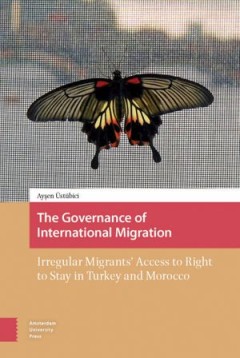
The Governance of International Migration : Irregular Migrants’ Access to R…
As concern about immigration has grown within Europe in recent years, the European Union has brought pressure to bear on countries that are allegedly not sufficiently governing irregular migration with and within their borders. This book looks at that issue in Turkey and Morocco, showing how it affects migrants in these territories, and how migrant illegality has been produced by law, practiced…
- Edition
- -
- ISBN/ISSN
- 978 90 4853 280 3
- Collation
- -
- Series Title
- -
- Call Number
- 331.544 UST g
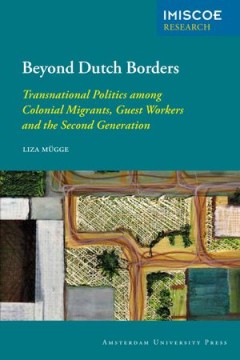
Beyond Dutch Borders : Transnational Politics among Colonial Migrants,Guest W…
Despite widespread scepticism in receiving societies, migrants often remain loyal to their former homeland and stay active in the politics there. Beyond Dutch Borders is about such ties. Combining extensive fieldwork with quantitative data, this book compares how transnational political involvement among guest workers from Turkey and post-colonial migrants from Surinam living in the Netherlands…
- Edition
- -
- ISBN/ISSN
- 978 90 4851 282 9
- Collation
- -
- Series Title
- -
- Call Number
- 305.906 912 MUG b
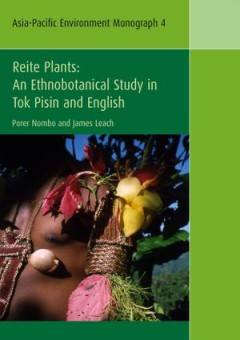
Reite Plants An Ethnobotanical Study in Tok Pisin and English
Reite Plants is a documentation and discussion of the uses of plants by speakers of the Nekgini language, a people who reside in the hinterland of the Rai Coast in northern Papua New Guinea. High quality images and detailed information about traditional customary practices using plants provide a unique entry into understanding Nekgini social and cultural life. The book contains a discussion of …
- Edition
- -
- ISBN/ISSN
- 9781921666018
- Collation
- -
- Series Title
- -
- Call Number
- -
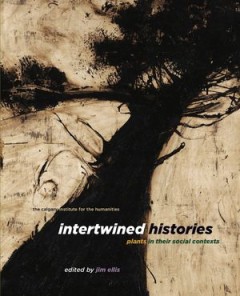
Intertwined Histories Plants in Their Social Contexts
How do we understand the boundaries of individual creatures? What are the systems of interdependency that bind all living creatures together? Plants were among the the first to colonize the planet. They created the soil and the atmosphere that made life possible for animals. They are some of the largest and oldest life forms on Earth. In spite of their primacy, Western cultures have traditional…
- Edition
- -
- ISBN/ISSN
- 9781773850917
- Collation
- -
- Series Title
- -
- Call Number
- -
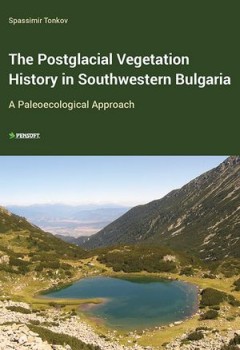
The Postglacial Vegetation History in Southwestern Bulgaria
This book presents the results from the palynological and paleoecological studies conducted with my participation in Southwestern Bulgaria during the period 1985-2020. The study area has always played a key role in the investigation of the Late Quaternary vegetation history in Bulgaria since the middle of the past century. With the development of the research methods (pollen analysis, determina…
- Edition
- -
- ISBN/ISSN
- 9786192480448
- Collation
- -
- Series Title
- -
- Call Number
- -

Flora Malesiana. Series I - Seed Plants, Volume 14. Myristicaceae
Flora Malesiana. Series I - Seed Plants, Volume 14. Myristicaceae
- Edition
- -
- ISBN/ISSN
- 9789546427311
- Collation
- -
- Series Title
- -
- Call Number
- -
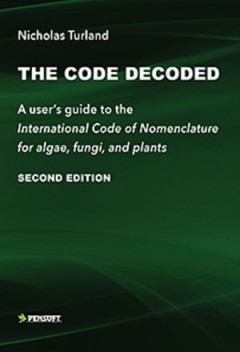
The Code Decoded
The purpose of this second edition of The Code Decoded is to serve as a user’s guide to the International Code of Nomenclature for algae, fungi, and plants (“Code”), specifically the Shenzhen Code (Turland & al., 2018). My objective, as for the first edition (Turland, 2013), has been to create a text that is reasonably clear and simple, which inevitably means it will fail to cover every r…
- Edition
- -
- ISBN/ISSN
- 9789546429643
- Collation
- -
- Series Title
- -
- Call Number
- -
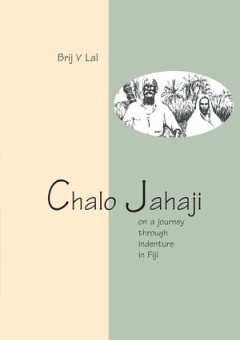
Chalo Jahaji : On a journey through indenture in Fiji
“It is a milestone in subaltern studies, a biographical journey penned by a living relic of the indentured experience and a scholar whose thoroughly interdisciplinary approach is a good example for the anthropologist, the sociologist or the economist who wish to see the proper integration of their disciplines in a major historical work.” Brinsley Samaroo, University of the West Indies, St A…
- Edition
- -
- ISBN/ISSN
- 9781922144614
- Collation
- -
- Series Title
- -
- Call Number
- 306.363 092 LAL c
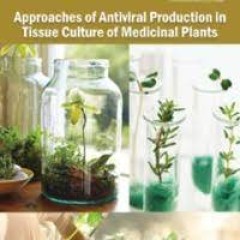
Approaches of Antiviral Production in Tissue Culture of Medicinal Plants
Plant cell culture provides a renewable and an easily scalable source of plant metabolites. Several strategies such as manipulating the nutrient, optimizing the culture conditions, feeding of precursor and elicitation can be applied in order to substantially increase the yields of Secondary Metabolites in plant cell cultures. Hence in present scenario, In Vitro process is a promising Eco friend…
- Edition
- -
- ISBN/ISSN
- -
- Collation
- -
- Series Title
- -
- Call Number
- 630
 Computer Science, Information & General Works
Computer Science, Information & General Works  Philosophy & Psychology
Philosophy & Psychology  Religion
Religion  Social Sciences
Social Sciences  Language
Language  Pure Science
Pure Science  Applied Sciences
Applied Sciences  Art & Recreation
Art & Recreation  Literature
Literature  History & Geography
History & Geography